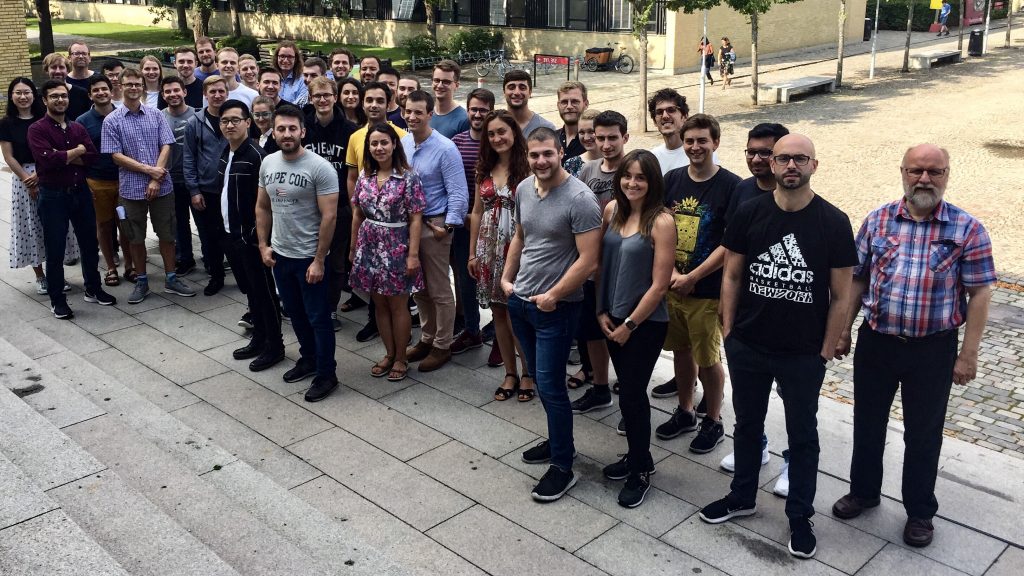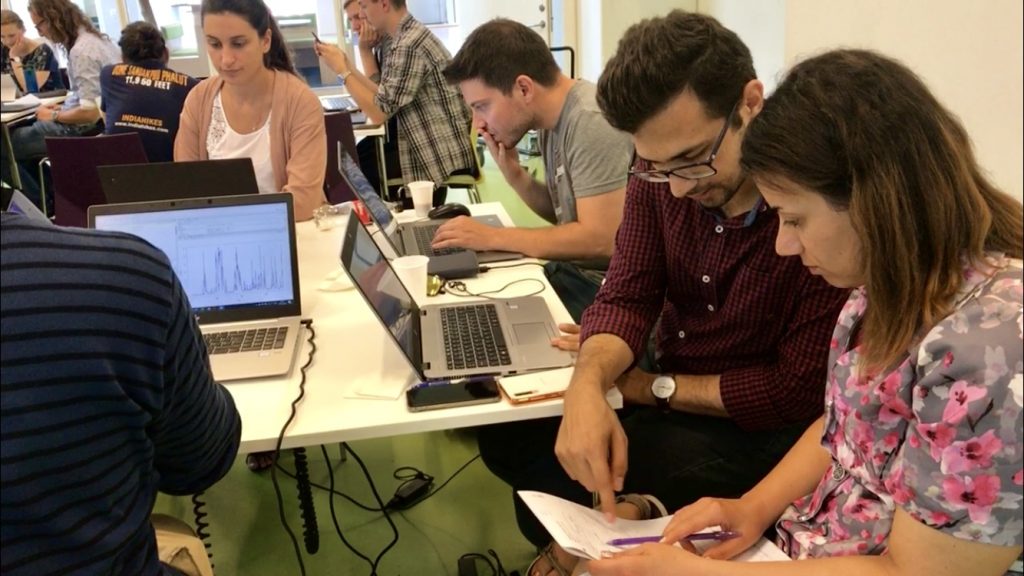During a week, 44 young researchers got ‘hands-on’ experience with statistical modelling techniques for smart energy systems and intelligent energy savings, including calculating solar energy gain in buildings.
—
44 PhD students and postdocs mainly from universities in Europe have spent last week of August at DTU Compute to learn about smart energy systems and intelligent energy savings.
The summer school was arranged by the two centres CITIES, lead by DTU (including the Interreg supported project Smart Cities Accelerator (SCA) and researchers from DTU, Section for Dynamical Systems), and FME-ZEN, lead by NTNU in Norway in collaboration with IEA EBC Annexes 67 & 71.
During the summer school named ‘Time series analysis – with a focus on modelling and forecasting in energy systems’ the participants were introduced to statistical techniques that are particularly useful for data driven modelling of energy systems. As well as the use of the models for e.g. control.

Engineering the future
This year was only the second time for the summer school about smart energy systems and Professor Henrik Madsen was very happy with the number of participants.
“These are the PhD students and postdocs to help the world achieve the green transition. These are not people, who are close to retiring. They are the ones who need to be part of this process,” he says.
“It is fascinating that there are so many coming from universities and knowledge institutions around Europe, and with backgrounds from universities all over the world, to hear about what we can do and learn about the technologies, we use in SCA, FME-ZEN and CITIES,” Henrik Madsen says.
Modelling building thermal dynamics
During the course, the students learned about how CITIES, FME-ZEN and SCA work with intelligent energy savings using data to characterize the thermal performance of buildings. And how to identify the dynamics of the building.
This applies both in terms of being able to use the building as thermal energy storage, but also to be able to pinpoint the easiest achievable energy savings – thus where building refurbishment gives the most value.
The summer school alternated between lectures and exercises to get ‘hands-on’ experience with the technique – for example, to calculate solar energy gain in buildings, and how it affects the building.
This is a technology, that PhD student Christoffer Rasmussen and his colleagues from DTU Compute has developed. Christoffer Rasmussen was also one of the teachers at the summer school:
“Usually, the solar energy gain is said to be dependent on the sun’s radiation from the outside, but the usual data driven models assume that the solar gain is proportional to the solar irradiation and constant throughout the day. It is not, as the Earth is turning.”
“In our data driven models we have made the solar energy inflow dependent on the sun’s position in the sky, such that you can account for, for example, a large window area towards one corner of the Earth and shading trees toward another. The incident angle of the sun rays will also change during the day which affects the amount of irradiation entering the building. All this, and more, are we now capable of estimating only based time series measurements,” explains Christoffer Rasmussen.
During the course, participants have learnt how the statistical modelling techniques work fundamentally and how to implement it in grey-box models (combining a partial theoretical structure with data) and in this way model the solar heat gain in buildings.
“At the end of the day, you want a good model that can describe the building dynamics and forecast different scenarios. It can be used, for example, to control the heating system of the building; how does the temperature react if you turn off or turn on the heat? How can you reduce the cost of heating the building if the consumer has variable energy prices, while using more green energy and keeping the consumer happy and warm?” says Christoffer Rasmussen.
Happy participants
PhD student Nasibeh Saffari from URV – Rovira at Virgili University in Catalonia, Spain is one of the participants at the summer school.
Usually, she works with artificial intelligence in the pharmaceutical industry. She is here because her friends praised last years summer school.
“It is interesting to work with models and algorithms. I am here to expand my knowledge. It is hard because I work with something completely different at home in Spain, but I’ve learned a lot over the week,” she says.
Another participant, American Evan Alexander, who has an MBA from Duke University, works daily for Maersk’s digitization group in Copenhagen, where data is analyzed through a forecasting program to optimize Maersk’s shipping business.
“It has been great! This is the second year that I spend a week of my summer vacation at a summer school at DTU. I am here to learn new modelling techniques and update my knowledge. I definitely expect to do it again next year because I get a lot of knowledge back home,” says Evan Alexander.
After the course, the students submit a report on the exercises they work on at the summer school.

